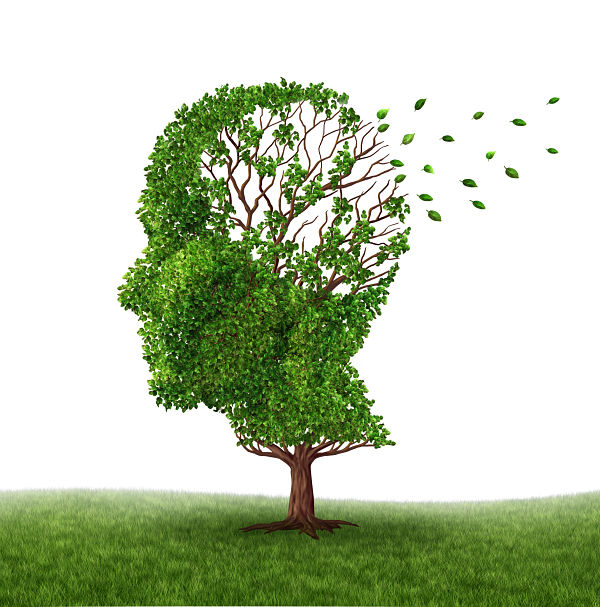Rather than a specific disease, dementia describes a group of symptoms that may affect your memory, cognitive function, and social abilities. These changes can drastically affect your quality of life as the disease progresses and mean you may require constant care. As with any condition, early detection and preventative measures can make a world of difference in mitigating or delaying the onset of symptoms.
Dr. Habib Khan of the Arizona Institute of Neurology and Polysomnography specializes in the diagnosis and management of dementia and its related symptoms. With decades of neurology-based experience, Dr.Khan will isolate the specific causes of your condition and recommend a therapy plan that is best suited to your needs and goals. That being said, there are types of dementia that respond better than others to therapeutic interventions.
What are the Symptoms of Dementia?
Dementia symptoms vary by individual and can depend on the cause but often include:
- Changes in your ability to acquire or retain knowledge
- Memory loss
- Difficulty communicating or finding words
- Problems planning, organizing, or handling complex tasks
- Decreased coordination
- Confusion and disorientation
Types of Dementia That Respond Well To Early Therapy
Alzheimer’s Disease
The most common cause of dementia, Alzheimer’s disease, accounts for 70-80% of dementia cases according to the NIH. Alzheimer’s is a progressive disease, meaning dementia-related symptoms gradually worsen over the span of years. Initially, you may experience mild memory loss, eventually losing the ability to hold a conversation and respond to their surroundings.
Lewy Body Dementia
Lewy body dementia is the second most common type of dementia after Alzheimer’s. Lewy bodies are small deposits of protein that can form inside nerve cells in the brain. These deposits interrupt neurological function involved in thought processes, memory, and motor function. This condition causes a progressive decline in mental capabilities, while also experiencing hallucinations and attention deficits. Other side effects include symptoms similar to Parkinson’s such as rigid muscles, slow movement, and tremors.
Vascular Dementia
Vascular dementia is a general condition that is attributed to problems with reasoning, planning, judgment, memory, and other thought processes caused by brain damage from impaired blood flow to your brain.
A stroke suffered due to blockages in an artery in your brain can lead to vascular dementia, but strokes don’t always cause vascular dementia. The effects of a stroke depend on the location of the brain that was deprived of blood flow. Vascular dementia can develop due to reduced circulation or damaged blood vessels that emulate similar side effects as a stroke.
Parkinson’s Disease
Parkinson’s dementia is thought to be related to Lewy bodies. Most people with Parkinson’s develop dementia as a progression of their Parkinson’s disease, rather than having both Parkinson’s and Alzheimer’s. There are some overlapping symptoms, but in general, Alzheimer’s affects language and memory, while Parkinson’s affects problem-solving (executive function), cognitive functions, as well as motor function.
Managing Symptoms of Dementia
Early diagnosis and intervention is important. Dr. Khan’s unique approach to degenerative brain disorders has enabled hundreds of families to take care of their loved ones at home. His philosophy to be proactive and preventive at the same time not only has helped patients remain functional, but has also helped families emotionally and financially. Functional patients can easily be managed at home. It saves family’s time and money and keeps them emotionally intact. Contrary to that, even in the best nursing homes or assisted living facilities patients go downhill very quickly.
Unfortunately, at this time there is no cure for the various forms of dementia. However, there is a range of therapeutic interventions and symptom management methods to alleviate and delay the onset of associated symptoms.
Medications
This form of intervention will vary depending on a variety of factors that may be influencing your condition. Medication can help restore memory function, judgment, and other cognitive functions. Other medications can be prescribed to handle secondary symptoms like sleep disorders, depression, and many more.
Counseling/Therapy
Adjusting to the changes brought on by dementia and its symptoms can be incredibly challenging to handle on your own. This makes things like occupational therapy and management of your living space critical aspects to dementia therapy plans. Ensuring that your living space is free of hazards and is kept in healthy living conditions can greatly improve your day-to-day life.
You will also need to adjust your expectations for how efficiently you can perform tasks. You will need to learn to break big tasks into smaller, more manageable ones. Dr.Habib Khan is a strong advocate for treatment occurring under a positive mental state. We want to help you view the management of your condition in a positive and constructive light. Never underestimate the power of the human mind and how it can affect the human body!
Dementia Management Therapy Available in Casa Grande, Arizona
If you or a loved one is experiencing the early onset of dementia-related symptoms, reach out to the specialists at the Arizona Institute of Neurology and Polysomnography at your earliest convenience. After your condition has been diagnosed, our team can begin crafting a specialized treatment plan that directly reflects the progression of your condition. This ensures you receive care that is tailored to your current needs, offering you the greatest opportunity to retain your quality of life!
Call our offices to speak with a member of our team or schedule a consultation online today!



